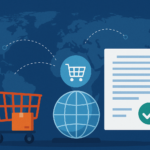With sustainability becoming a focal point in global commerce, many governments have implemented environmental levies to reduce the environmental impact of certain goods. In South Africa, these levies are part of the country’s environmental fiscal reform efforts and aim to influence consumer behavior, discourage the use of environmentally harmful products, and support environmentally-friendly practices.
For online retailers, understanding these levies is crucial for maintaining compliance, setting appropriate prices, and accurately managing tax obligations. This article delves into the fundamentals of environmental levies, the specific products they target, and the implications for South African online retail businesses.
Understanding Environmental Levies
Environmental levies are taxes imposed on specific goods that have a harmful impact on the environment. In South Africa, these levies are administered by the South African Revenue Service (SARS) and are applied to products like plastic bags, incandescent light bulbs, motor vehicles, and carbon emissions.
The goal is to either reduce the use of such products or ensure that their environmental impact is offset through government revenue generated by the levies. For businesses, especially online retailers, these levies represent an additional cost of doing business and need to be factored into pricing, logistics, and tax calculations.
Key Products Subject to Environmental Levies
South Africa’s environmental levies currently apply to the following products, all of which may be relevant to online retailers depending on their inventory:
- Plastic Bags: South Africa imposes an environmental levy on plastic shopping bags, typically included in the sale price. As an online retailer, you might not directly supply customers with these bags, but if you use plastic packaging for shipping or offer plastic bags as an option, it’s important to understand the implications. Some e-commerce businesses are opting for alternative packaging options to avoid these levies and meet consumer demand for eco-friendly packaging.
- Electric Light Bulbs (Incandescent): Incandescent bulbs are another product subject to an environmental levy. Due to their inefficiency and environmental impact, the South African government encourages businesses and consumers to switch to LED or CFL bulbs. If your online store sells lighting products, you should be aware of these levies when setting prices for incandescent options. Additionally, consider promoting energy-efficient lighting as a sustainable alternative.
- Motor Vehicles: Motor vehicles are subject to a CO2 emissions levy based on their environmental impact, which applies mainly to new and imported cars. While this may not directly affect most online retailers, businesses that sell motor vehicles or large items like recreational vehicles should account for this levy in their pricing models. Additionally, retailers that rely heavily on transportation or offer delivery services may indirectly feel the impact through increased costs, which could be passed down the supply chain.
- Carbon Emissions (Carbon Tax): South Africa has implemented a carbon tax for industries contributing to greenhouse gas emissions. Although this tax primarily targets large industrial emitters, online retailers who engage in high levels of product manufacturing or shipping can be indirectly affected by increased production and delivery costs. To reduce costs and environmental impact, many online businesses are considering carbon offset programs or partnering with eco-friendly logistics companies.
Implications for Online Retailers
- Pricing Adjustments: To cover environmental levies, retailers often need to adjust prices on affected products. It’s crucial for online retailers to be transparent about any additional charges related to environmental levies, as South African consumers increasingly prioritize sustainability and may prefer businesses that disclose their eco-friendly initiatives.
- Product Selection: Retailers selling products subject to levies, like plastic bags or incandescent bulbs, may consider replacing them with sustainable alternatives. Offering environmentally-friendly products can help differentiate your business and attract eco-conscious consumers. For instance, biodegradable packaging or energy-efficient lighting options are increasingly popular among South African shoppers.
- Tax Compliance: Environmental levies are tax obligations that must be accurately reported and paid to SARS. Failure to comply can result in penalties. As a retailer, it’s essential to stay informed on updates from SARS regarding environmental levies, as these taxes can evolve. Working with a knowledgeable accountant or tax advisor who understands the specifics of South African environmental levies can ensure that your business remains compliant.
- Sustainability Initiatives: Incorporating sustainability into your business practices can not only mitigate the financial impact of environmental levies but also enhance your brand reputation. Many online retailers are now engaging in recycling programs, reducing waste, and minimizing carbon emissions to align with consumer expectations. Offering incentives, such as discounts for customers who use reusable bags or choose low-emission shipping options, can further boost brand loyalty.
Navigating the Path Forward
As environmental concerns continue to grow, so will the scope and scale of levies and taxes aimed at addressing ecological impacts. For South African online retailers, staying informed about environmental levies and their implications is a strategic step in remaining compliant and appealing to sustainability-minded consumers.
Embracing eco-friendly alternatives and transparent pricing practices can enhance your business’s reputation and long-term success. By understanding and adapting to these levies, online retailers can help foster a more sustainable future while safeguarding their business interests.





